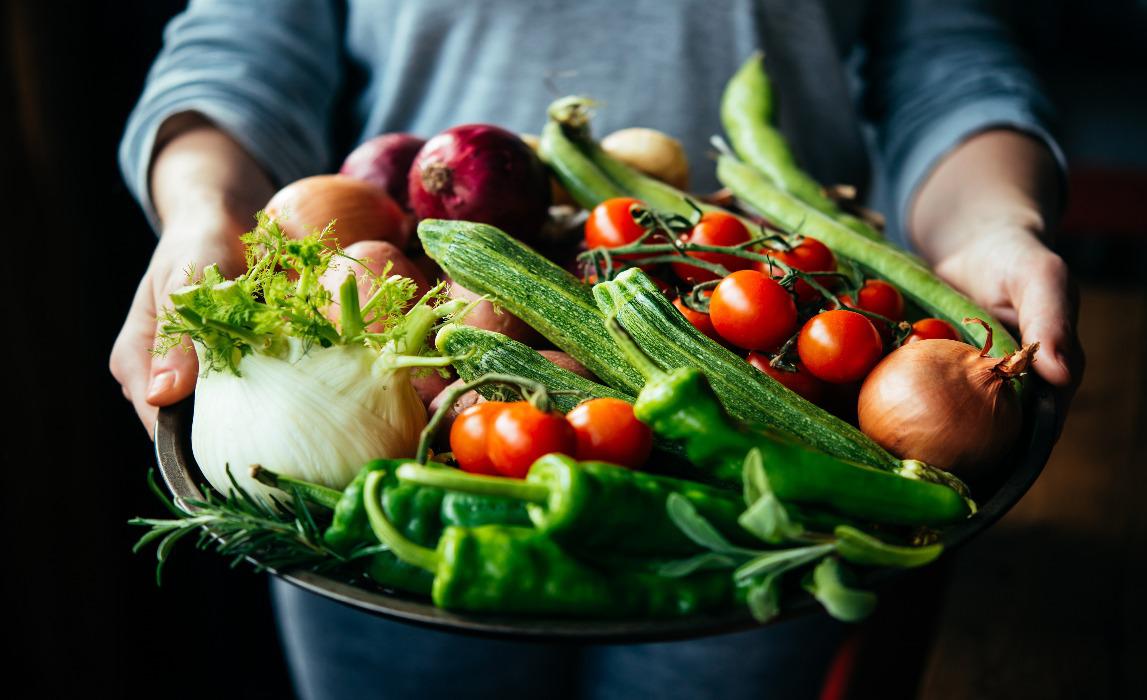Vietnam's Organic Produce

Becoming certified organic is riddled with bureaucratic processes and requires dropping money along every step of the way, no matter what part of the world we’re talking about.
But in Vietnam, where certifications are viewed as more of a hassle than a stamp of confidence, are they really necessary? For my investigation, I made a trip to Dalat. On a spectacularly sunny spring afternoon there, I came upon what is known as “Plastic City”; an expanse of greenhouses as far as the eye can see, rivalling the agricultural behemoths of central California or the farmlands of Holland. Growing inside are millions of hectares of tomatoes, salad greens, artichokes, strawberries, flowers and tea and coffee.
It’s impressive, but there’s a looming haze over the entire region. It was a combination of the dust, heat and something else: pesticides. The vapour-like substance seemed to ooze out of many of the greenhouses and I wanted to run into the green hills. So I did, and I soon found my way walking through Golden Garden Produce.
Family owned, Bob Allen and his wife Hue have run their five hectare farmland for about 23 years. They sell their organic and hydroponic produce to resorts and restaurants in Hanoi, Nha Trang, Phan Thiet, Danang and Saigon. You may be familiar with the taste of their cut, as they own Veggy’s supermarket in D1. They grow sustainably, buying their land from 20 families, now encircled by what seems to be another 20. It was an impressive set up, using bore wells for water and growing on raised or hydroponic beds. However, they are not certified organic. Is that important? Not normally, but in a land where consumers are wary of believing Vietnamese testament, it may be important to have that extra seal of approval.
Here in Vietnam there are four certifications available: two from the EU, EC 834/2007 and EC 889/2008; one from USA, National Organic Program (NOP); and Vietnam’s own PGS. The first two must be certified by a third party agency, such as SGS, a world-leading inspection company, while the third is a Ministry of Agriculture and Rural Development (MARD) certification committee. There is not, unfortunately, a centralised database of all of Vietnam’s certified organic farms.
With no shortage of access to domestic produce, you may ask why I go through all the trouble to find and buy certified organic? Again, it’s not the necessity of a certification. When eating local it is, however, a necessity to eat produce which you know was grown organically. Plenty of small farmers (such as K’Ho Coffee) are raising their crops as such without certification. Six Senses Ninh Van Bay also raises several hectares of fruits and vegetables for their guests using traditional companion planting and chilli oil spray to keep pests at bay.
As we (should) remember from remedial Biology, plants not only absorb water and toxins through their leaves, but also through their roots. So even if a farm claims not to use pesticides, it’s important they also use raised beds with imported soil or manure. Pediatrician Dr. Jonathan Halevy at Family Medical Practice cited a 2015 study in which “All [109 surveyed Vietnamese] children had high blood lead levels.
Heavy metals in the soil are of concern here. (By the way, the accepted level of lead in the system is basically zero.) We focus more on this because we can’t necessarily test for exposure to toxins. Bloodwork would only show accumulation, so we can’t associate that to pesticide poisoning,” Dr. Halevy continued.
What does this all mean? Consider spinach, which in some parts of the world, is grown to clear lead and other hazardous material from soil which must then be disposed of as hazardous waste. Here in Vietnam, it is one of the most cultivated greens. If you want to treat your body as the temple that it is, do yourself a favour and ensure you know how your produce is grown. Better yet, buy a bag of organic coco peat and grow your own.
Dr. Jonathan Halevy, Head of Pediatrics, Family Medical Practice Ho Chi Minh City
 We use cookies on this website to enhance your user experience
We use cookies on this website to enhance your user experience